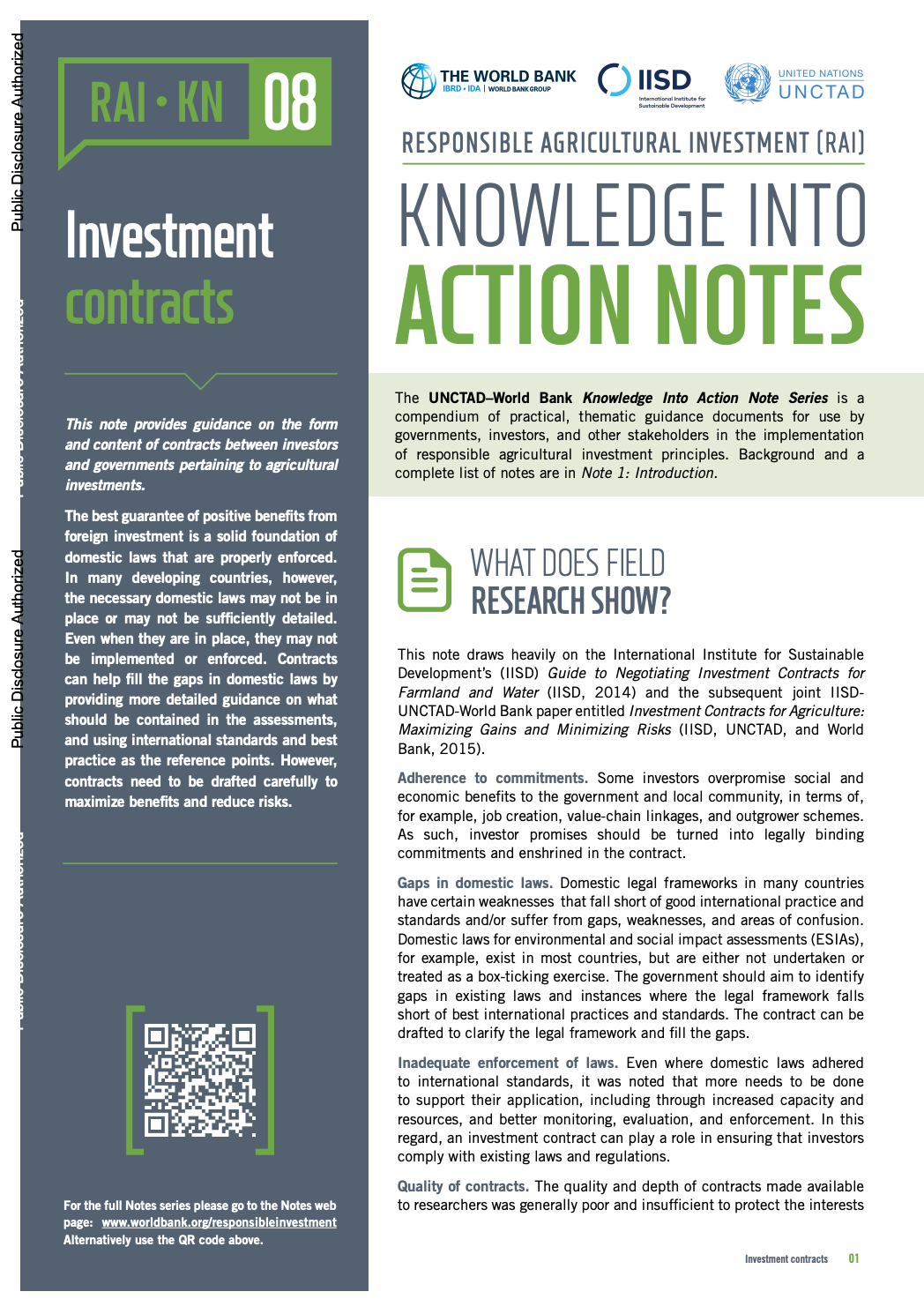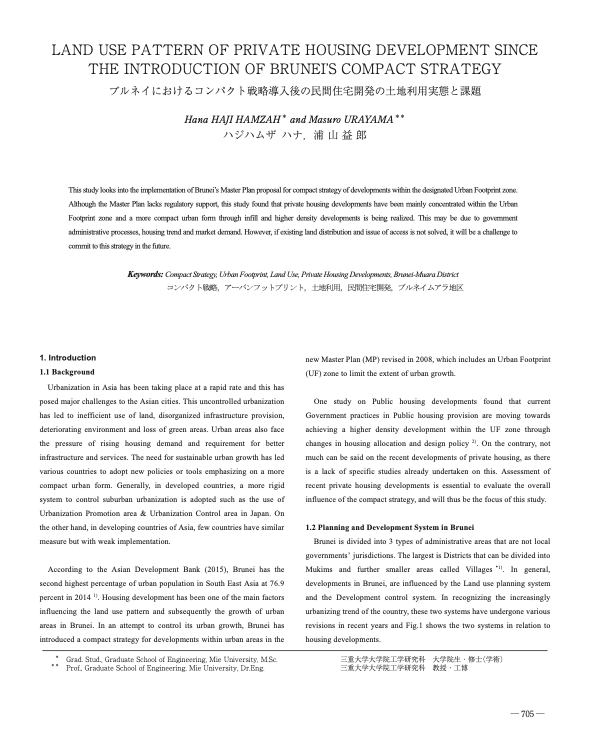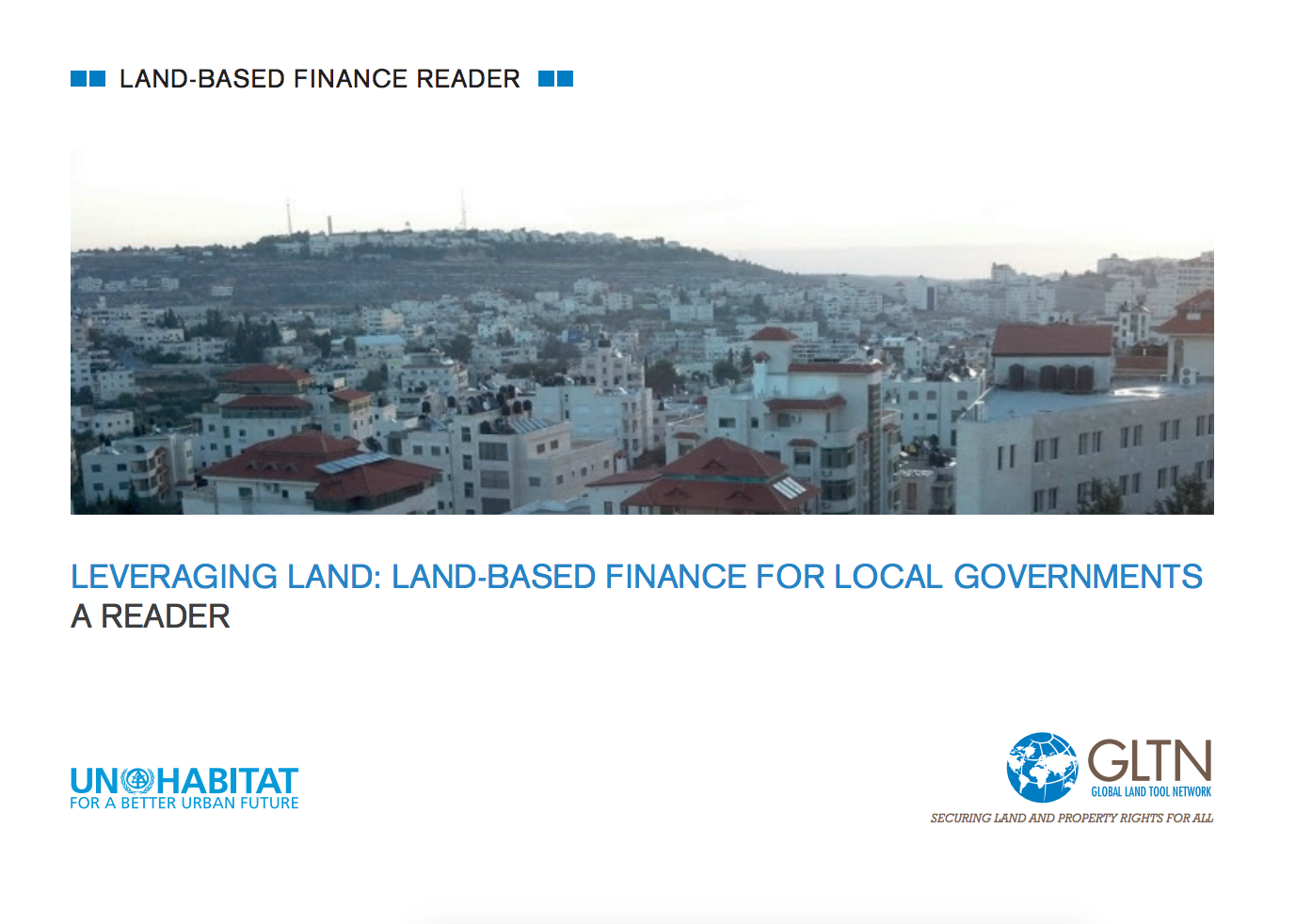8 - Investment Contracts - Responsible Agricultural Investment (RAI): Knowledge into Action Notes series
This note is part of an Action Notes series and provides guidance for governments and companies on the form and content of contracts between them in relation to agricultural investments.








